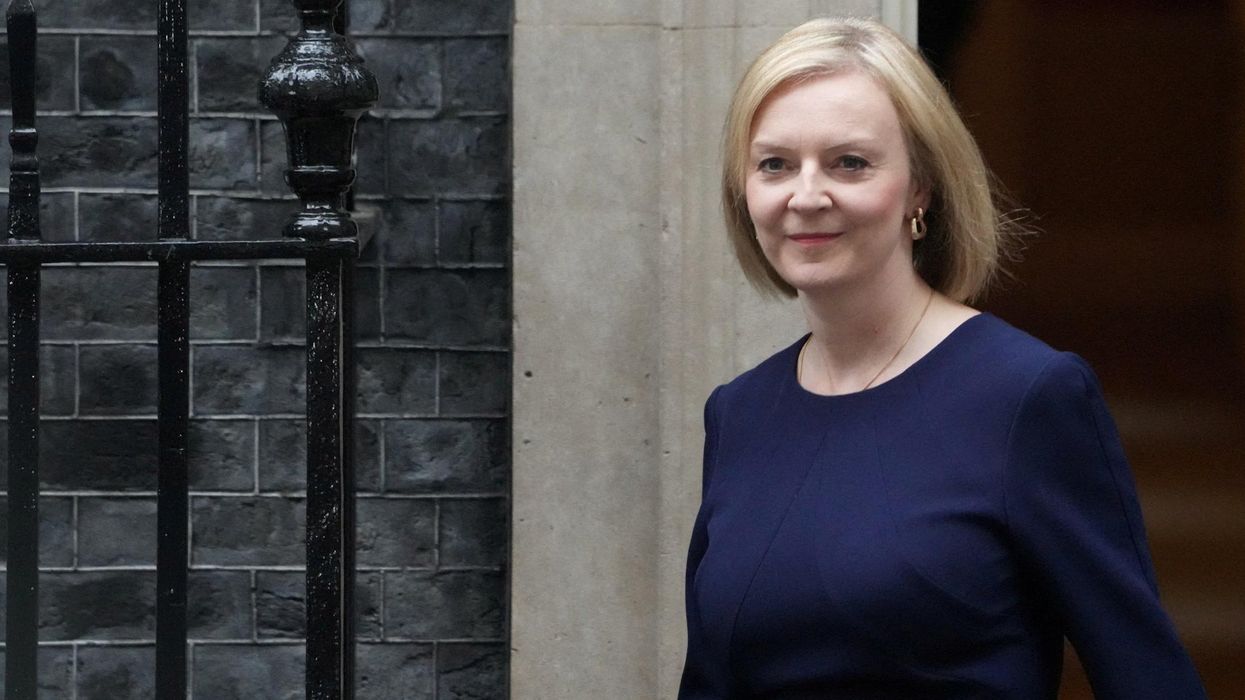Liz Truss has been facing the media for the first time after the disastrous mini-budget was unveiled last week, and it has not gone well.
The PM appeared on a number of local BBC radio stations after failing to appear before the media this week, despite the economic turmoil sparked by the announcement last week.
She was accused by former Bank of England governor Sir Mark Carney of “undercutting economic institutions” and “working at some cross-purposes” with the bank, after it was forced to make an emergency intervention in the gilt market to prevent a crisis in the UK’s major pension funds.
It comes after the International Monetary Fund hit out at Truss and Kwasi Kwarteng’s tax cuts for the rich, warning that “large and untargeted fiscal packages” would “likely increase inequality” in Britain.
Sign up for our free Indy100 weekly newsletter
Truss was confronted on the mini-budget by presents on the various BBC stations – these are the five most awkward moments.
She was lost for words when asked about mortgages
\u201cSweet lord. The PM is literally lost for words on BBC Stoke when questioned about mortgages.\u201d— Dino Sofos (@Dino Sofos) 1664438569
BBC Radio Stoke’s John Acres criticised Truss’s government, and the PM had no words when trying to respond.
“We’re going to spend more in mortgage fees under what you’ve done based on prediction than what we would have saved with energy,” he asked, before an awkward pause from Truss.
She was challenged on fracking
\u201cLiz Truss crumbles under questioning from @GrahamLiver on @BBCLancashire about local consent for fracking.\u201d— Dino Sofos (@Dino Sofos) 1664437194
Fracking for gas could go ahead in Lancashire despite opposition the local county council, Liz Truss has suggested.
Speaking on Thursday the prime minister said she would not rule out drilling in the county, where the council is opposed, along with most members of parliament. She has stressed that "local consent" will be required before any extraction goes ahead, but not said what this will look like or which hurdles would have to be cleared.
She struggled to respond to questions from Graham Liver on BBC Lancashire on the matter in another awkward moment.
"The Energy Secretary will be laying out in more detail exactly what that looks like. But it does mean making sure there is local support for going ahead ... there are various detailed issues to be worked through," she told BBC Radio Lancashire during a tour of BBC local radio stations.
She was asked the questions we all have
\u201c\ud83d\udd25Ohhhhh yesssss. Regional journalism strikes. What a fiery opener from Rima Ahmed to Liz Truss on @BBCLeeds. \u201cWhere have you been for the last 4 days?\u201d\u201d— Best for Britain (@Best for Britain) 1664435425
The PM has been noticeable by her absence following the mini-budget on Friday, and Rina Ahmed of BBC Radio Leeds put direct questions to her on the subject.
“Did you sleep well” and “where have you been for the last 4 days?” she asked. Talk about a strong opening gambit.
She tried to claim the Bank of England was stepping in because of Putin
\u201cOH MY DAYS\n\nJames Hanson, BBC Bristol, calls out Liz Truss\u2019s scripted answers, refuses to accept this is all down to Putin, & asks if the Bank of England had to intervene because of him\u201d— Toby Earle \ud83c\uddfa\ud83c\udde6 (@Toby Earle \ud83c\uddfa\ud83c\udde6) 1664438067
Truss’s government was called out by James Hanson of BBC Bristol – and the PM responded by trying to suggest Vladimir Putin’s invasion of Ukraine was to blame for the current economic turmoil in the UK.
Challenged that the market turmoil was down to the mini-Budget, she told the presenter: “This is about Putin and the war in Ukraine – that is why we are facing such high energy prices … It is very difficult in stormy times in the international markets.”
Claiming energy bill support was the bulk of the mini-Budget, she added: “What this is about is about curbing inflation. This is a global problem – and I think it would be helpful if you looked at the situation in other countries as well.”
She was confronted by a listener who had to sell her house
\u201cRadio Tees:\n\n\u201cWhat are you doing to fix this mess?\u201d\n\n\u201cWe\u2019ve taken decisive action\u2026\u201d\n\n<plays clip of local woman, Diane, who\u2019s forced to sell her house>\n\n\u201cEverybody is being offered help with their fuel bills\u2026\u201d\n\n\u201cHow are tax cuts for the wealthy going help people like Diane?\u201d\u201d— Sharon O'Dea (@Sharon O'Dea) 1664435141
On BBC Radio Tees, Liz Truss was told about a listener, Diane, who has had to sell her house of 25 years due to the cost of living crisis.
Asked how tax cuts for the wealthiest would help people like Diane, the PM replied: “We are cutting taxes across the board because we were facing the highest tax burden on Britain for 70 years and that was causing a lack of economic growth, and without growth we don’t get the investment, we don’t get the jobs we need, which helps local communities right around the country.
“We’re also reversing the increase in national insurance. We’re also reducing the basic rate. So we’re reducing taxes across the board, because the tax burden was too high.
Have your say in our news democracy. Click the upvote icon at the top of the page to help raise this article through the indy100 rankings.













